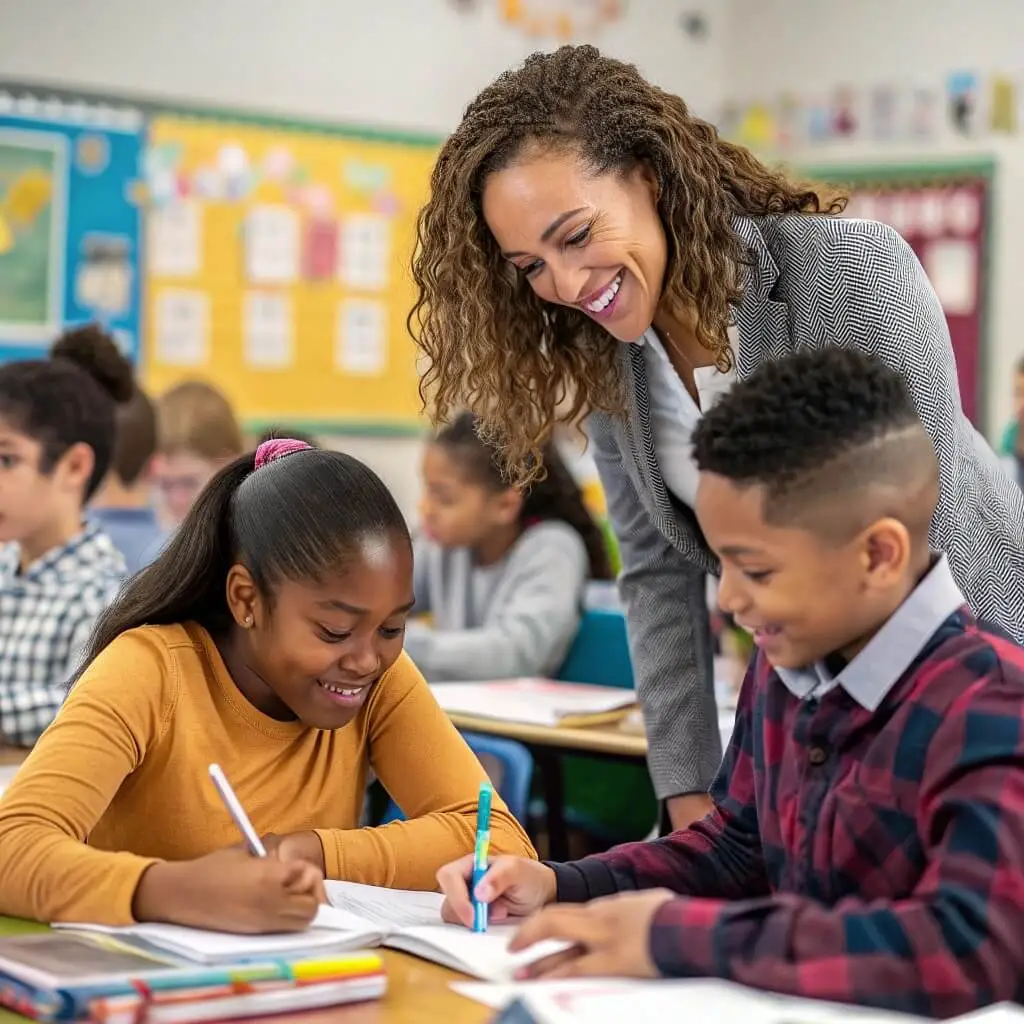
3 Reasons You Might Make a Good Special Education Teacher
Special education teachers possess a unique set of skills and characteristics that enable them to support students with diverse learning needs. This profession requires an understanding of the distinctive challenges these learners face and a passion for creating inclusive educational environments where every student can thrive. If you’re considering a career in special education, there are certain qualities that may indicate you’d be well-suited to the job. Below, we explore some of the reasons you might make a good special education teacher.
Having a Strong Desire to Make a Positive Impact on Students’ Lives

Inherent in every special education teacher is a deep-seated drive to make a difference in the lives of their students. Recognizing the transformative power of education, they dedicate their efforts to ensure every child has access to a meaningful learning experience. Their commitment extends beyond academic success to include fostering independence and self-confidence in their students.
The most passionate special education teachers often cite the influence they have on their students’ futures as a primary motivation. Watching a child navigate and surmount personal challenges to achieve their goals provides an incomparable sense of accomplishment. This impact is not limited to the classroom; it often resonates throughout the student’s life, sparking a positive trajectory of personal development.
A career in special education can be a calling for those who envision a vocation where their daily efforts promote significant and lasting change. Learn about UC’s Master of Education in Special Education for those looking to take a step forward in becoming a talented practitioner in this rewarding field.
Possessing Exceptional Patience and Adaptability in Teaching
Special education demands a degree of patience beyond that required in traditional teaching roles. Students with special needs may take longer to master concepts or may need instructions delivered in alternative formats. Teachers in this field demonstrate an admirable patience, repeating and rephrasing lessons as necessary, ensuring each student grasps the content.
Flexibility is another hallmark of exceptional special education teachers. They are adept at altering their teaching methods to match the varied learning styles and needs within their classroom. Adaptability extends beyond instruction; it also includes adjusting expectations and timelines for individual students while maintaining a high standard of education.
Disruptions and unforeseen challenges are commonplace in special education settings. Teachers who thrive are those who maintain composure and find creative solutions in real time. This composure not only benefits the students but also fosters a stable learning environment where students feel safe to explore and grow.
The Ability to Develop Innovative Teaching Strategies and Individualized Education Programs (IEPs)

Special education teachers often work at the forefront of pedagogical innovation due to the need for highly individualized teaching strategies. Successfully addressing the distinct learning needs of each student requires a creative, problem-solving mindset. Teachers regularly develop unique lesson plans and teaching aids that resonate with their students.
In addition to crafting engaging classroom activities, a special education teacher’s expertise is evident in their ability to design and implement IEPs. These documents are essential roadmaps for a student’s educational journey and are tailored to both their academic levels and personal growth targets. A skilful teacher will involve the student, their family, and other professionals in this process to ensure a holistic approach to education.
Keeping abreast of technological advancements that can aid in special education is another area where innovation is critical. Whether it’s incorporating software that helps with reading comprehension or communication devices that facilitate expression, special education teachers are often at the intersection of technology and learning accommodations.
Embodying Empathy and Strong Communication Skills in the Classroom
Empathy is the cornerstone of any successful special education teacher’s practice. It allows them to connect with their students on a meaningful level, fostering a sense of trust and security. Empathetic teachers can anticipate the frustrations and challenges their students might face and respond to them with understanding and support.
Communication, both with students and their support systems, is equally vital. Expressing ideas clearly and listening attentively to feedback is essential for a special education teacher. It ensures that students comprehend instructions and feel heard, which is critical for their academic and emotional well-being.
Altogether, the combination of understanding, patience, adaptability, desire for impact, innovation, empathy, and communication defines the exemplary special education teacher. For those who see themselves reflected in these qualities, a fulfilling and impactful career awaits in the field of special education.



